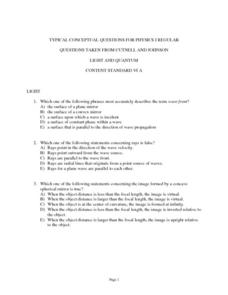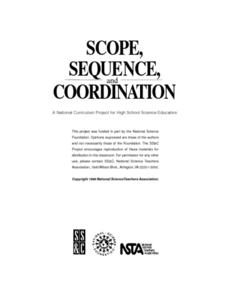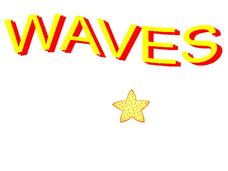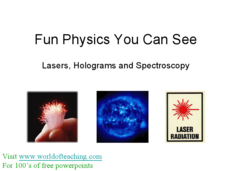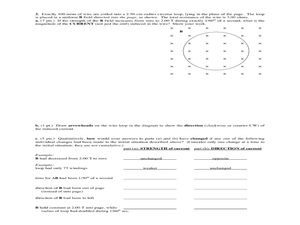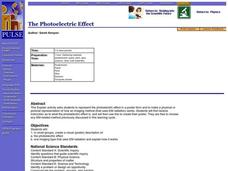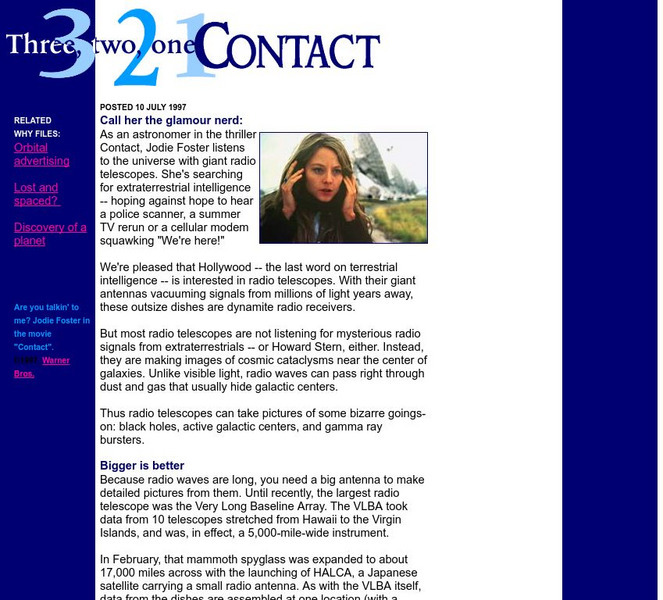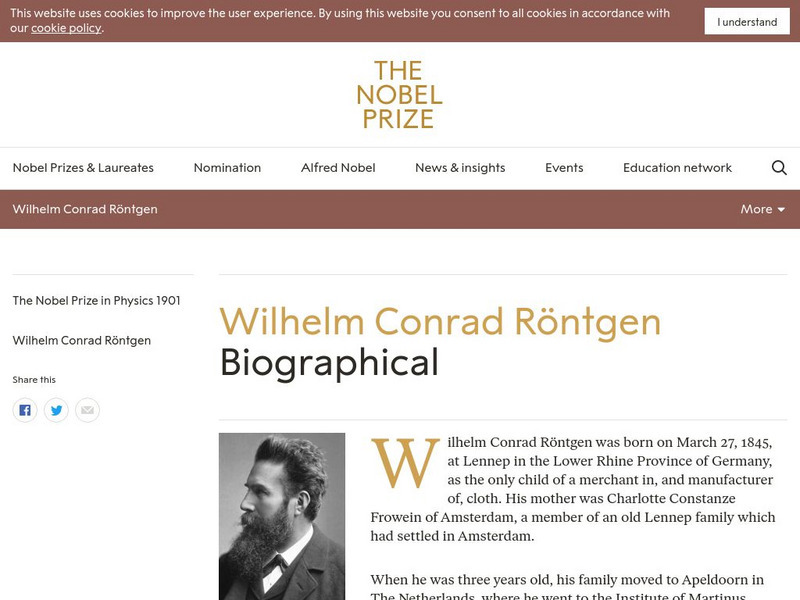Curated OER
Typical Conceptual Questions for Physics I - Light and Quantum
This is a stellar overview of everything light and quantum! There are 30 multiple choice questions, none of them requiring any mathematical computation. There are a few diagrams to analyze: light rays striking reflective and refractive...
Curated OER
Wave Phenomena and the Electromagnetic Spectrum
Science learners scrutinize shadow size and quality, and experiment with diffraction. They model superposition of electromagnetic waves, and experiment with interference. These activities are action-packed and challenging for your...
Curated OER
Waves
An incredibly colorful PowerPoint presents all the facts and definitions about waves that you could need for beginning physical scientists. There are several useful links to online animations of wave action. This may have been produced...
Curated OER
Fun Physics You Can See
Fascinating aspects of electromagnetic radiation and its use in obtaining and transferring information are described here. Learners will find the connections to current technology interesting. Although the slides are text-heavy, they do...
Curated OER
Wave Practice Problems
Physics scholars list the properties of waves and calculate the speed, wavelength, and frequency of waves. The worksheet is concise, but covers a variety of wave computational skills. The formatting is neat, but it does have small...
Curated OER
Typical Numeric Questions for Physics I - Waves
Physics masters figure out the wavelength of different waves. Looking at a wave graph, they identify different characteristics. Many more problems get them working with both electromagnetic and sound waves. There are a total of 17...
Curated OER
Physics 152 ~ Fall 2003 Midterm Exam #3, Parts A, B
Illuminated physics stars show what they know about light by taking this exam. They match several related vocabulary terms to descriptions and answer multiple choice questions about the characteristics of light, magnification, and...
Curated OER
Fall 2003 Midterm Exam #3
Let there be light! When your physics learners take this midterm exam, light will be their focus. They will show what they know about electromagnetic waves, interference, refraction, reflection, lenses, prisms, and more! The test is...
Curated OER
Fall 2003 Midterm Exam #2
Your physics students will really shine when they take this midterm exam. It covers a variety of concepts dealing with electromagnetic spectra, electricity, and motors and it provides a variety of question styles.
Curated OER
The Photoelectric Effect
After some online instruction, chemistry aces use their creative abilities to produce a poster describing the photoelectric effect and one type of imaging technology that uses electromagnetic radiation. This simple, straightforward...
Curated OER
Review of Optics
In this optics review learning exercise, students complete 50 multiple choice questions on light reflection, diffraction and interference.
Curated OER
WAVES AND PHOTONS
Learners examine the many types of electromagnetic waves, the concept of an EM wave, how James Clerk Maxwell proposed a slight modification of the equations of electricity, Heinrich Hertz and his radio-frequency, wavelengths, and light...
Massachusetts Institute of Technology
Mit: Open Course Ware: Courses: Physics Ii: Electricity and Magnetism
College-level physics course highlighting electricity and magnetism. This course is divided into several modules including electric fields, magnetic fields, electromagnetic forces, conductors and dielectrics, electromagnetic waves, and...
University of Colorado
University of Colorado: Physics 2000: More About Visualizing Electromagnetic Waves
Discusses the nature of an electromagnetic wave. Explains the oscillating electric field and represents it through clever graphics and animations.
University of Colorado
University of Colorado: Physics 2000: Cat Scans: Projecting Shadows
This page and the three pages which follow discuss how X-ray technology can be used to produce an image of the human body. Discussion is understandable and highly intriguing. Several interactive animations allow the visitor to explore...
University of Colorado
University of Colorado: Physics 2000: Speed of Light
Using an interesting and intriguing format, this page discusses the question of "How does one measure the speed of light." Explanation focuses on Galileo's and Roemer's efforts to obtain a reasonable value. Also discusses Heinrich...
University of Colorado
University of Colorado: Physics 2000: Electromagnetic Waves
Using a student-teacher dialogue format, this page discusses the nature of light as an electromagnetic wave and the electromagnetic spectrum.
Physics Classroom
The Physics Classroom: Polarization
"How Do We Know Light Behaves as a Wave?" An answer is provided in this discussion of the polarization of light and the use of Polaroid filters in sunglasses. The four methods discussed on this page are: polarization by transmission,...
University of Colorado
University of Colorado: Physics 2000: Einstein's Legacy: Microwave Ovens
A series of pages that explain how microwave radiation is utilized by ovens to cook food. Includes several Java applets.
University of Colorado
University of Colorado: Physics 2000: Electromagnetic Waves
An excellent site with several pages describing what electromagnetic radiation is.
University of Wisconsin
The Why Files: 3 2 1 Contact, Don't Touch That Dial
A discussion of reflecting telescopes and their use in radio astronomy. The types of information gained from and the research emphasis fueled by such telescopes is described. Site uses Hollywood references and a humorous style.
Exploratorium
Exploratorium: The Doppler Effect
Visit this page to see an animation demonstrating the Doppler Effect. How do sound waves and electromagnetic waves behave similarly with this effect?
TeachEngineering
Teach Engineering: Visible Light and the Electromagnetic Spectrum
In this instructional activity, the electromagnetic spectrum is explained and students learn that visible light makes up only a portion of this wide spectrum. Students also learn that engineers use electromagnetic waves for many...
Nobel Media AB
The Nobel Prize: Wilhelm Conrad Rontgen Biographical
This biographical note on Wilhelm Conrad Rontgen describes his boyhood, upbringing, education, scientific work and accomplishments. Focuses on his studies of Xrays.


